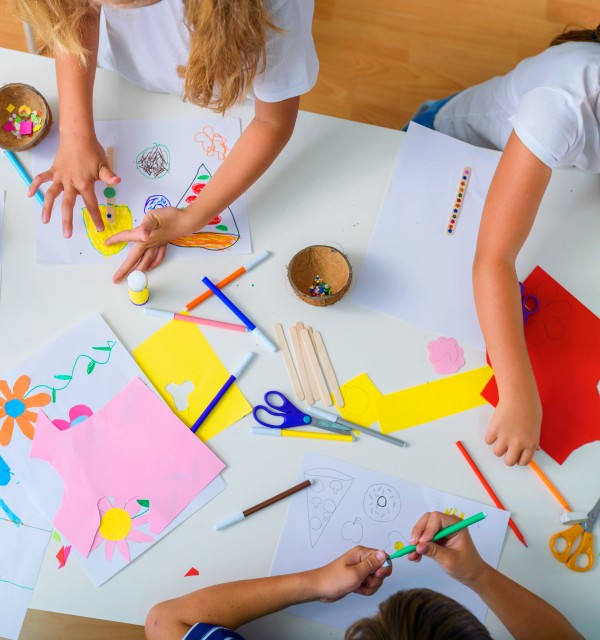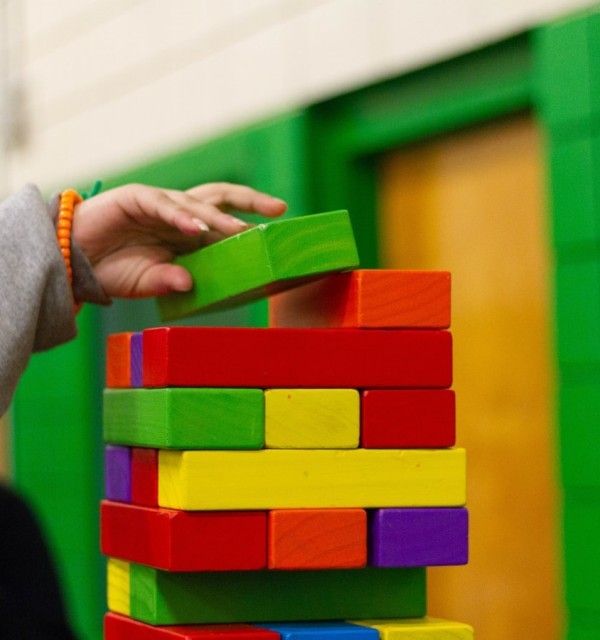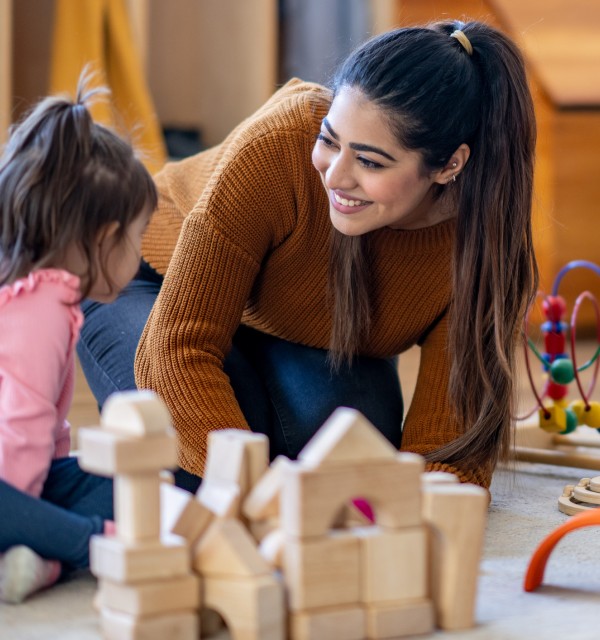FILIORUM – Centre for Research in Early Education and Care has three focus areas within the research: play, communication and belonging.
Belonging
Through research that provide new knowledge, the goal is that all children will experience a sense of belonging, social participation and interaction i ECEC settings. Belonging is one of three research areas for FILIORUM - Centre for Research in Early Education and Care.
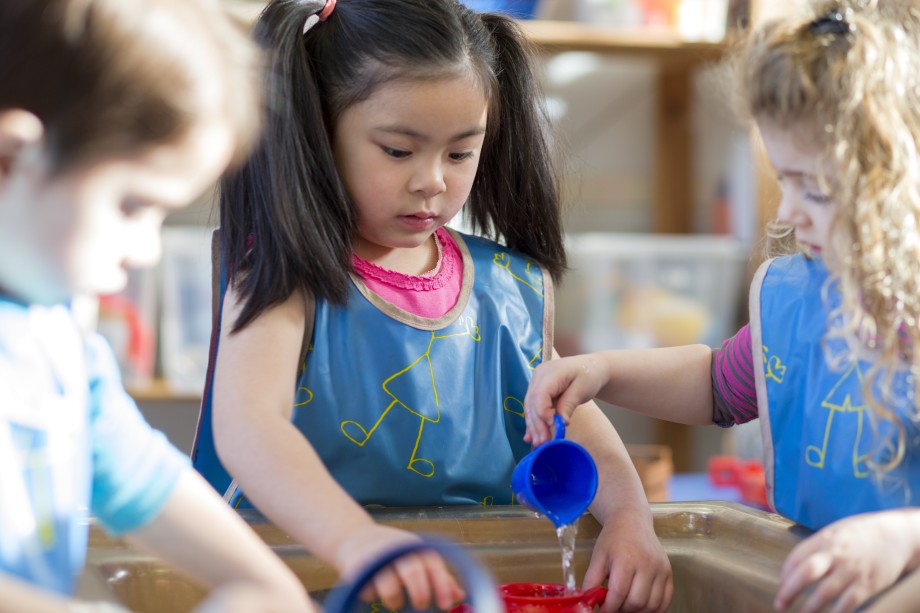
The Framework plan for kindergartens describes belonging as a fundamental, human need in the same way as care and security. Children should experience a sense of safety, belonging and well-being in ECEC settings.
Societies are increasingly multicultural, and ECEC institutions reflects this. Belonging is a very relevant and important topic in diverse ECEC. There is a clear need for more knowledge about children's belonging regardless of their background.
Belonging is a fundamental need
Research points to various challenges when it comes to inclusive pedagogical practice. More research is needed on how belonging is exercised in ECEC institution's everyday practices.
–Through cooperation projects with kindergartens and early childhood education programs at universities, we contribute to develop knowledge about belonging in a broad sense. The goal is to ensure that all children get a good start in life. Belonging is fundamental for children in terms of their well-being, play, exploration and learning in everyday life, says Marit Alvestad, Professor Emeritus at the Institute of Early Childhood Education at the University of Stavanger.
Several projects focusing on belonging
The Nordic research collaboration Politics of belonging is central to FILIORUM's research on belonging. The study sheds light on the perspectives, interpretations, and experiences children, ECEC staff, and parents have regarding belonging in communities.
– Inclusion and belonging go hand in hand. For a child to feel a sense of belonging, they must feel included," says Alvestad.
Inclusion, in the form of participation and belonging, is a fundamental principle in Norwegian education policy. However, research indicates that there is insufficient knowledge on how to locally facilitate support for inclusive practices. Therefore, the research project SUKIP aims to establish and study new innovative strategies for collaboration between kindergarten/school, educational-psychological services (PPT), and researchers with the goal of ensuring that all children experience inclusion and belonging in their everyday life.
The research project SELMA focuses on three important areas from the Framework Plan for Kindergartens: Social competence, mastery, and life enjoyment. The project's goal is to develop and test a program to support children's social and emotional learning and development in kindergarten.
Research shows that current special educational offerings are segregative and not very functional, and that children and their parents have little influence on how teaching is conducted. This can result in children with special needs being left behind. VERDI is an inclusive research project aimed at developing mathematics resources to help children with developmental disabilities gain the necessary mathematical understanding they need in their daily lives. To ensure that the research benefits the target group, the research team has included two co-researchers with learning disabilities.
Play
The role play has in children's lives and the many possibilities of play in diverse ECEC settings is a strong research focus for FILIORUM. Together with belonging and communication, play is one of the prioritized research areas for the centre.
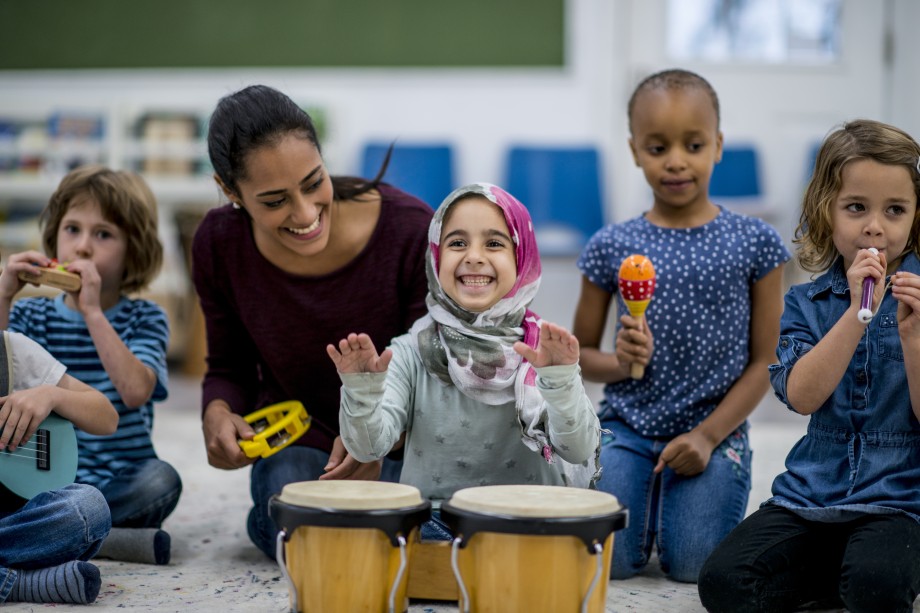
– Play is an infinitely large topic that we should never stop researching because it is so incredibly important for children. We also believe that there is an even greater potential for staff to help facilitate play in different ways, especially in diverse ECEC settings, says Ingunn Størksen, Professor at the Norwegian Centre for Learning Environment and Behavioural Research in Education.
ECEC institutions most important task is to meet children's need for care and play, as well as promote learning and formation as a basis for versatile development. Play has a central place in ECEC settings, and it is absolutely necessary that staff have a good knowledge of play, the importance of play and how they can facilitate everyday life so that all children have the opportunity to participate in play.
– We need more knowledge about how children develop basic skills through play in ECEC settings, Størksen adds.
Furthermore, more knowledge is needed about how play can contribute to children's joy, motivation, creativity, and problem solving that in turn can help create a foundation for lifelong learning.
– Play and flow have many common characteristics, and both are associated with joy for life and good mental health. There is a need to study these phenomena more closely in an ECEC context," explains Størksen.
It is also necessary with more research on what can motivate ECEC employees to become more involved in children's play and exploration.
FILIORUM projects form the basis for research on play
In the five-year research project DiCoTe, which stands for Increasing professional Digital Competence in ECTE with focus on enriching and supporting children’s play with coding toys, researchers will develop resources that contribute to enriching and supporting children's play with technology in kindergarten. The focus is on play with coding toys that children aged 3-5 years, in collaboration, can program by providing logical commands to a robot through direct interaction with the toy.
In the project Playful Learning, researchers explore how play-based approaches can promote language, mathematics, and self-regulation among the oldest children in kindergarten, and what effect this has on learning in school.
The goal of the Nordic collaborative project Computational Play in Early Childhood Education and Care is to develop new knowledge on how algorithmic thinking is approached through the use of digital toys in Nordic kindergartens, and how to use a play-responsive approach in this work.
Communication
Central to FILIORUMs research is to promote work with communication, both between children and between children and ECEC employees. FILIORUMs third research area is Communication.
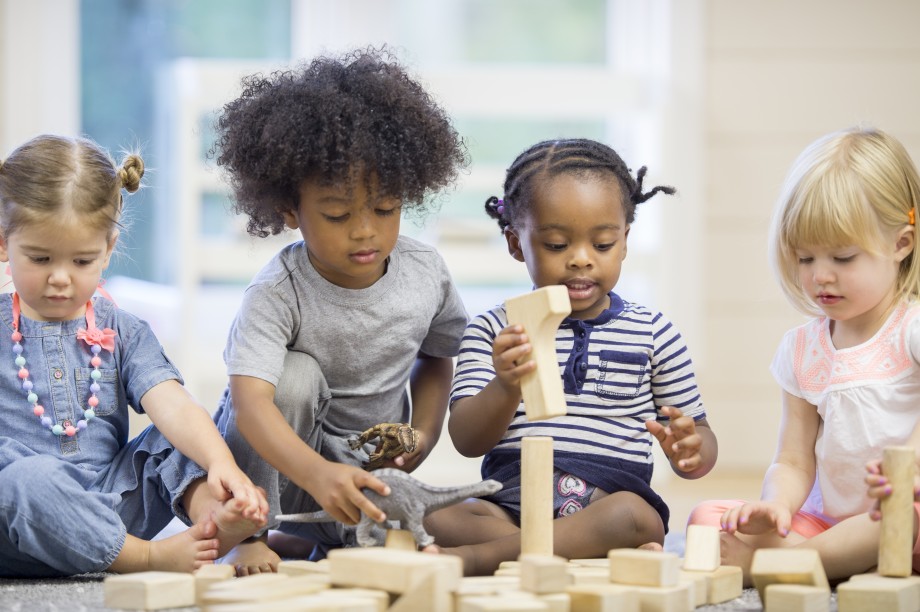
Communication is important in all work within ECEC, whether it is communication between children and ECEC personnel, between the children, between employees, or between the ECEC institution and the parents.
The kindergarten is more diverse today than just a few years ago. Children speak multiple languages, have different cultural backgrounds and are at different functionality levels.
– When talking about language, it is language in a broad sense, not just the spoken language. Mathematics can be one way of communicating, and the use of body language is another. Communication affects all disciplines in diverse ECEC, says Elin Reikerås, Centre Leader at FILIORUM and professor at the Department of Early Childhood Education at the University of Stavanger.
Communication at different levels
– We wish to explore what communication looks like at different levels in ECEC. Children's language development and language learning in ECEC settings are a central theme in this work. For example, the staff's knowledge of their role as linguistic models is central to children's language development, says Reikerås.
In the research project SPrELL, the goal is to support the literacy and second language development of multilingual children by motivating caregivers and ECEC teachers to read together with children in digital books available in multiple languages, and to contribute to increased collaboration between kindergartens and multilingual families.
Sensory Books is a good example of a project that explores how we communicate through senses, particularly the sense of smell. Here, children's sense of smell will be examined with a primary focus on digital books. Among other things, researchers will investigate how books and images can be used to learn about the connection between language and smell.
The Stavanger project has, among other things, examined children's language skills at different ages in kindergarten, as well as the mathematical skills, social competence, and motor skills that children possess, while art projects such as Scenekunst til alle små and 100 Glade Dager convey and create performing arts and music for the youngest citizens, providing kindergarten children with the opportunity to express themselves through emotional and aesthetic processes.
– ECEC institutions are holistic and comprehensive learning environments, and in FILIORUM we put great emphasis on communication in the context of play and belonging. Communication is central to children feeling a sense of belonging and being part of a group, and play is a form of communication. Everything is connected," concludes Reikerås.
